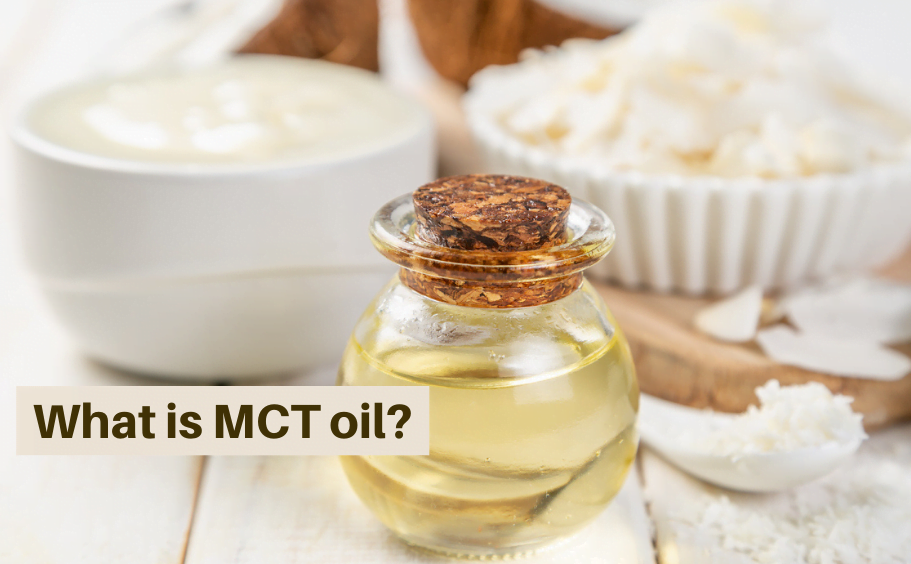Introduction
If you’re exploring ways to improve your energy, support weight loss, or enhance brain function, chances are you’ve heard of MCT oil. This powerful supplement has gained massive popularity in the wellness and keto communities for its wide range of health benefits. But what exactly is MCT oil? How does it work? And is it right for you?
In this detailed guide, we’ll break down everything you need to know about MCT oil, including its benefits, types, uses, dosage, and potential side effects. Whether you’re new to supplements or a fitness enthusiast, this article is your one-stop resource to understand and get the most from MCT oil.
What is MCT Oil?
MCT stands for Medium-Chain Triglycerides, a type of fat that is easier to digest than long-chain fats found in most foods. MCTs are naturally found in coconut oil, palm kernel oil, and some dairy products. MCT oil is a concentrated supplement made by extracting these beneficial fats—mainly from coconuts.
Unlike other fats, MCTs are quickly absorbed and converted into energy by your liver, making them ideal for people looking for fast fuel without a sugar crash.
Types of MCTs Found in MCT Oil
MCT oil usually contains a mix of the following four types of MCTs:
C6 (Caproic Acid) – Rare in most products; can cause digestive upset.
C8 (Caprylic Acid) – Quickly converted into energy; known for mental clarity and fat burning.
C10 (Capric Acid) – Slightly slower than C8 but still efficient for energy.
C12 (Lauric Acid) – Offers antimicrobial benefits but acts more like a long-chain fat.
High-quality MCT oils typically focus on C8 and C10, which are best for energy, brain function, and weight loss.
Key Benefits of MCT Oil
1. Boosts Energy and Mental Focus
MCT oil is metabolized quickly, providing rapid energy for both your body and brain. That’s why it’s popular among athletes and individuals on low-carb or ketogenic diets.
2. Supports Weight Loss
Promotes fullness and reduces appetite
Helps increase fat-burning through thermogenesis
Aids in maintaining ketosis for keto dieter
3. Improves Gut Health
MCT oil has antimicrobial properties that may help fight harmful bacteria, yeast, and parasites in the gut.
4. Enhances Athletic Performance
It provides instant fuel without spiking insulin levels—perfect for pre-workout routines.
5. Supports Ketogenic Diets
MCT oil is a keto staple because it supports the production of ketones, which are used as an alternative fuel source in low-carb diets.
How to Use MCT Oil
You can incorporate MCT oil into your diet in several easy ways:
| Method | Description |
| Coffee or Tea | Add 1–2 tsp to your morning beverage (e.g., Bulletproof coffee) |
| Smoothies | Blend with protein shakes or smoothies |
| Salad Dressings | Mix with olive oil, lemon, and herbs |
| Baking/Cooking | Use in low-heat recipes (avoid frying) |
| Supplements | Available in capsule form for convenience |
Tip: Always start with a small dose (½ to 1 tsp) and gradually increase to 1–2 tablespoons daily to avoid digestive discomfort.
Who Should Use MCT Oil?
MCT oil is ideal for:
Keto and low-carb dieters
Athletes and fitness enthusiast
People with digestive issues
Busy professionals needing focus
Those looking to lose or maintain weight
Potential Side Effects of MCT Oil
Although generally safe, MCT oil can cause side effects, especially when taken in large amounts or without building tolerance.
Digestive issues: gas, bloating, or diarrhea
Nausea: if consumed on an empty stomach
Weight gain: if consumed in excess without adjusting calorie intake
Pro Tip: Start slow and avoid taking it before intense workouts or on an empty stomach until your body adapts.
How to Choose the Best MCT Oil
When buying MCT oil, look for:
✅ 100% Pure MCTs
✅ No fillers or additives
✅ C8 and C10-rich formulas
✅ Non-GMO and sustainably sourced coconuts
✅ Third-party tested for quality
Popular Brands:
Bulletproof Brain Octane
Sports Research MCT Oil
Viva Naturals MCT Oil
Now Sports MCT Oil
MCT Oil vs Coconut Oil: What’s the Difference?
While both contain MCTs, they’re not the same.
| Feature | MCT Oil | Coconut Oil |
| MCT Concentration | ~100% | ~55% |
| Absorption Speed | Very fast | Slower |
| Taste/Smell | Odorless, flavorless | Coconut aroma |
| Ideal For | Supplements, fast energy | Cooking, skin care |
So, if you want quick energy and brain power, go for MCT oil. If you need an all-purpose cooking oil, coconut oil works fine.
FAQs About MCT Oil
Q: Is MCT oil good for intermittent fasting?
A: Yes! MCT oil won’t spike insulin and can support ketone production, making it a favorite for fasted energy and mental clarity.
Q: Can I cook with MCT oil?
A: MCT oil has a low smoke point, so it’s best used in low-heat cooking or as a supplement.
Q: How fast does it work?
A: Most users feel a mental and physical energy boost within 15–30 minutes after consumption.
Q: Is it safe for everyone?
A: While generally safe, pregnant women, children, or those with liver issues should consult a doctor before use.
Final Thoughts
MCT oil is more than just a trend—it’s a scientifically backed supplement that can boost energy, enhance mental focus, support weight loss, and even promote better digestion. By integrating it into your daily routine smartly, you can enjoy a cleaner, sustained source of fuel without the crash associated with sugar or caffeine.
